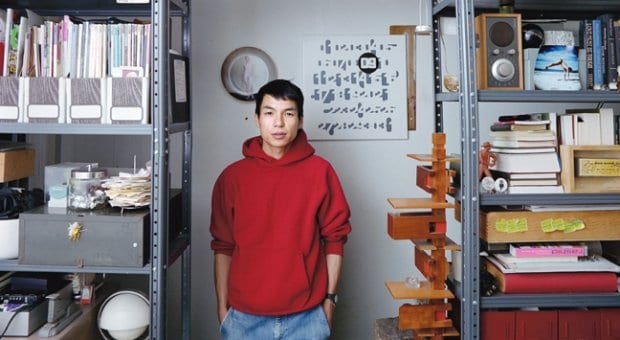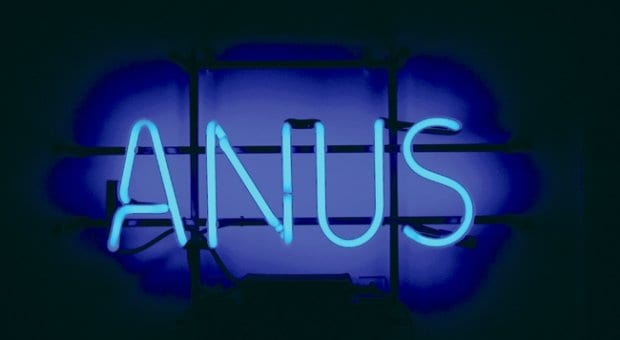
Tobias Wong Credit: Museum of Vancouver (Dean Kaufman)
He was best known for his mis- chievous critiques of consumer culture. Now artist Tobias Wong’s designs, which subverted everything from the McDonald’s spoon to 9/11, are being featured in the first comprehensive solo exhibition of his work since his apparent suicide two years ago.
“I compare him to a poet — they use the same words we do but use them in a way that makes us see the world differently,” says Viviane Gosselin, co-curator of the Museum of Vancouver exhibit. “He used design to make us see the way we consume in a different way.”
Wong became known for appropriating recognizable designs and subverting them. Not easily pigeonholed by genre, he has been described as an artist in approach who used a designer’s tools.
Wong was first cast into the spotlight with the creation of the Unauthorized Burberry Buttons (1999). He printed Burberry’s plaid onto buttons and handed them out free at art shows. With Coke Spoon #2, he took a McDonald’s coffee stirring spoon (allegedly popular with cocaine users) and plated it gold.
He often poked fun at design, like in Doorstop, when he used Alvar Aalto’s Savoy vase as a mould and had to smash it to free the concrete he poured inside.
Therein lies the beauty of Wong’s work: the transformation of mundane objects into something unexpected.
“You don’t know if he’s condoning consumerism or critiquing it,” Gosselin says.
“His approach is both light and deep and makes us want to do art, makes us want to look at the art surrounding us a second time,” she says. “He used a lot of humour and irony in his work, which makes it very palatable.”
Co-curator Todd Falkowsky, who knew and collaborated with Wong, remembers him as humble and without pretension.
“He never really had grand messages,” Falkowsky says. “He let the art speak for itself.”
Originally from Vancouver, Wong studied at Emily Carr University of Art and Design and the University of Toronto before moving to New York in 1997 to study design at Cooper Union School of Art. During this time, instructor Doug Ashford said he was one of the rare students talking explicitly about his sexuality in his art.
Wong’s notoriety grew when he hung a neon sign saying “anus” from his East Village apartment window (located kitty-corner to gay bar Cock).
His Fucking Ottoman is reimagined as a giant vibrator, with a mink-lined 12-inch glory hole on the side.
“Is he making a reference to his own sexuality? Could be, but it speaks to all of us as well,” Gosselin says.
While he was open about his sexuality and lived in New York with his boyfriend of six years, Tim Dubitsky, it wasn’t the most frequently examined theme in his art.
“Some of his work kind of lived there, but that never seemed to be the story,” Falkowsky says. “Tobi was talking about other stuff.”
In the wake of Sept 11, 2001, Wong created NYC Story Matchbook (2002): the New York skyline, with the twin towers intact, represented by matches.
His most subversive post-9/11 piece is Box Cutter (2002), a utility knife of the kind used by the hijackers with the words “another notion of possibility” engraved on the side.
“It was the first time art was a part of the conversation after 9/11,” Falkowsky suggests.
“His ideas were taken very seriously by art and design communities,” he adds.
Falkowsky worries that the sensation surrounding Wong’s death overshadows his work. Wong hung himself in 2010, at age 35. Some suspect he was asleep when he hung himself because he suffered from parasomnia and sleepwalking.
Even now, when you do a Google search for “Tobias Wong,” the top stories focus on the circumstances surrounding his demise.
“I want to keep the focus on his ideas,” Falkowsky says. “It’s not a memorial. It’s forward-looking, not retrospective.”

 Why you can trust Xtra
Why you can trust Xtra


